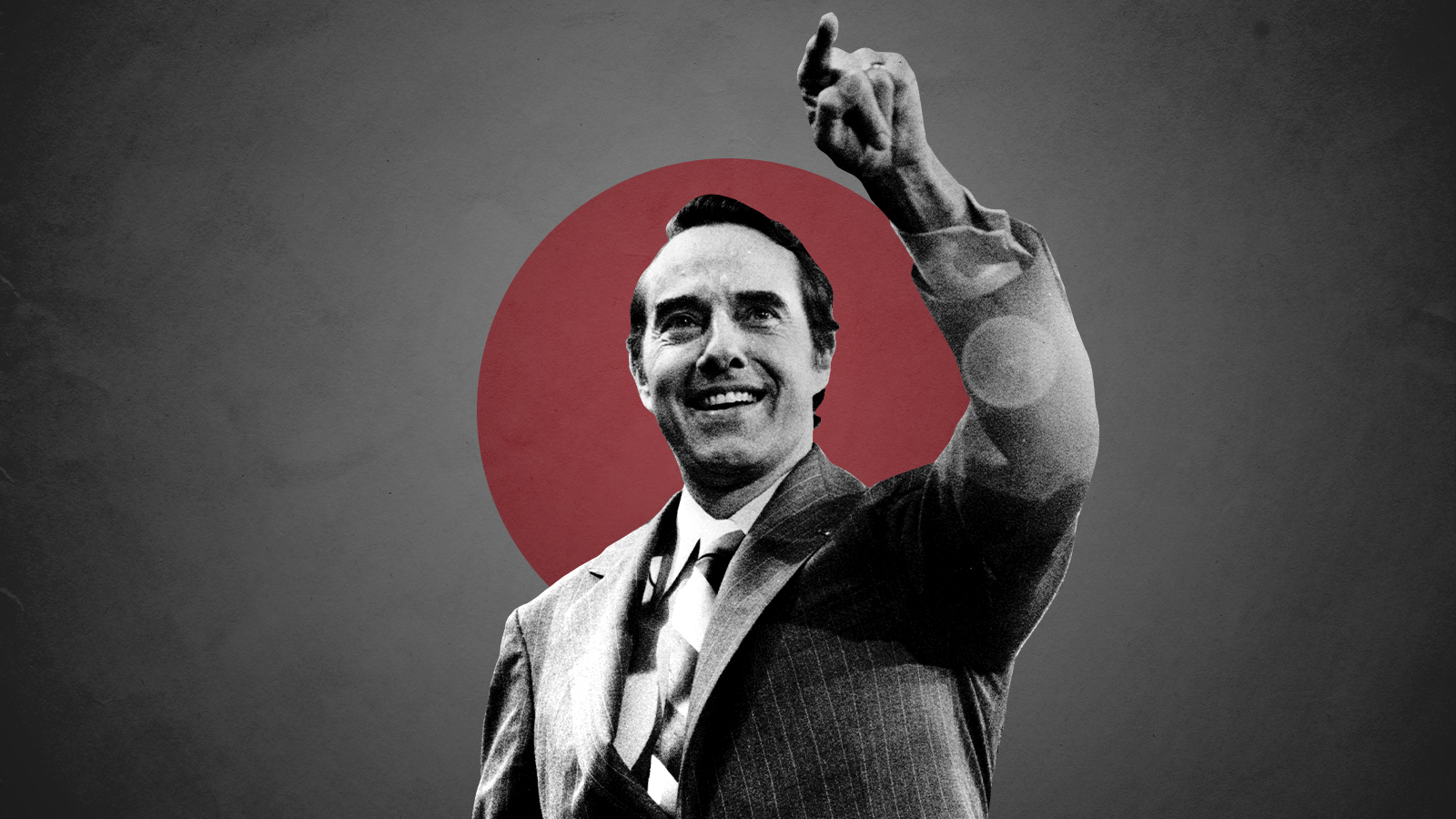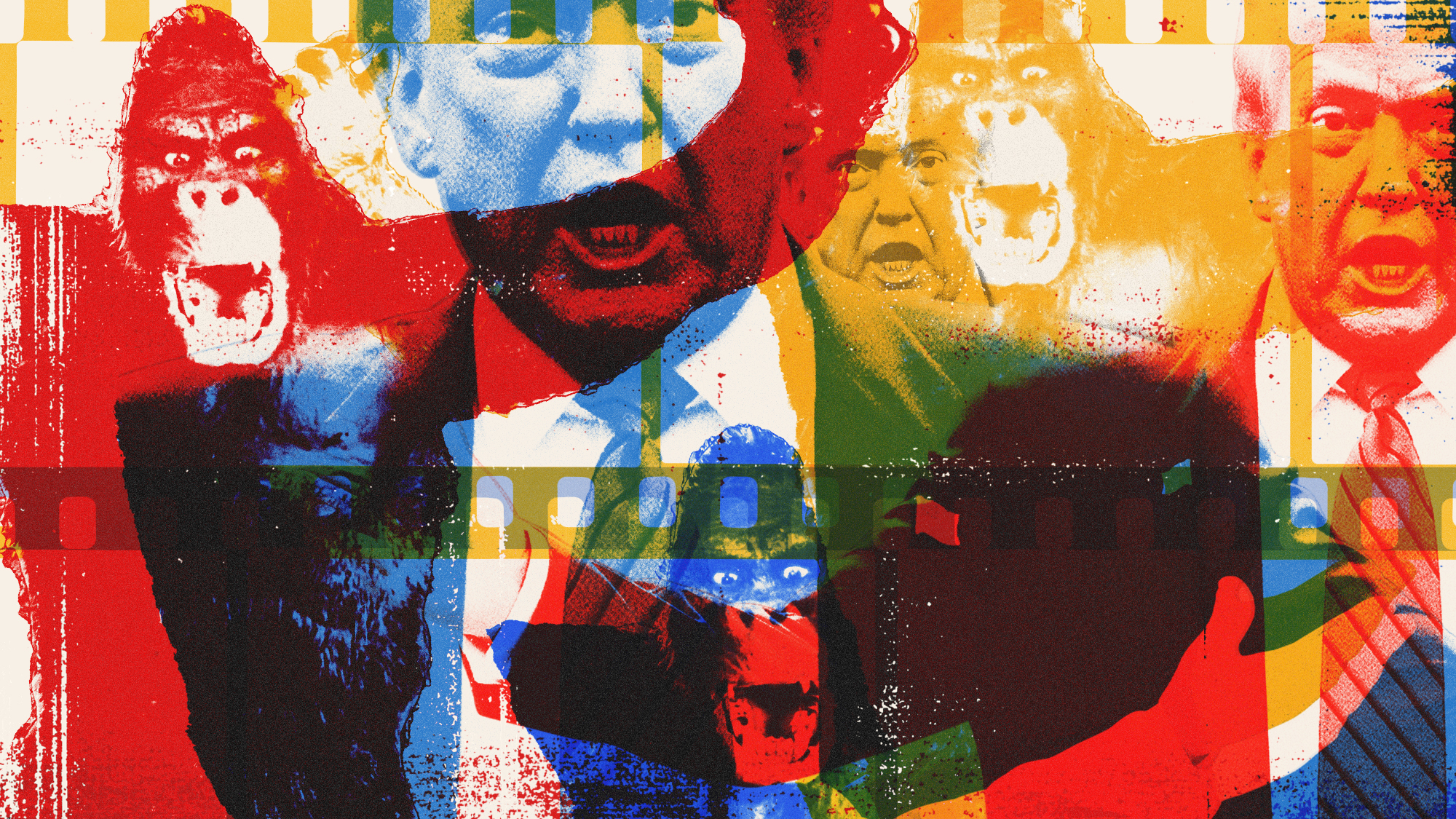Bob Dole, the complicated pride of Kansas


A free daily email with the biggest news stories of the day – and the best features from TheWeek.com
You are now subscribed
Your newsletter sign-up was successful
It's shocking that Bob Dole is dead. It seemed like he had always been part of the political firmament, and always would be.
Now, it's possible that I think this way because I'm a native Kansan, and Dole was entrenched in the U.S. Senate before I was born. He was never not there. Dole is known to much of the public as a failed presidential candidate, but for many Kansans of a certain age — my age, which is not that old but old enough to have voted in his last Senate race — he was also a beacon of state pride, proof that you could come from a small town and still make it big. (His hometown, Russell, also gave Arlen Specter to the Senate.) That meant something.
But like anybody who made it big, Dole's legacy is complicated.
The Week
Escape your echo chamber. Get the facts behind the news, plus analysis from multiple perspectives.

Sign up for The Week's Free Newsletters
From our morning news briefing to a weekly Good News Newsletter, get the best of The Week delivered directly to your inbox.
From our morning news briefing to a weekly Good News Newsletter, get the best of The Week delivered directly to your inbox.
On one side of the ledger, Dole was a snarling partisan — the GOP's 1976 vice-presidential candidate who got stuck with the "hatchet man" label after blaming Democrats for all the Americans who had died during the country's 20th-century wars. He narrowly kept hold of his Senate seat in 1974 by running what is regarded as one of the ugliest races in modern political history, attacking his Democratic opponent for conducting abortions. And in his status as elder statesman, Dole was the lone living former Republican presidential nominee to back Donald Trump in 2016. In form and substance, Dole helped make Trump possible.
But Dole wasn't only a partisan. He could, and did, reach across the aisle now and again to get useful things done for Americans — most notably as the force behind the Americans with Disabilities Act, which made the country a better, more fair place for millions of his fellow citizens to live. Newt Gingrich memorably labeled Dole the "tax collector for the welfare state" because in 1982 he voted for a tax increase. Dole thought it was the right thing to do to keep the country from sinking into debt.
I only met Dole once. It was the late 1990s, and he was conducting a sort of farewell tour of Kansas after losing the presidential race and having retired from the Senate. When I finally got to the front of the line, I had to remember to stick out my left hand for a handshake — Dole's right arm had been shattered in Italy in World War II. Say what you will about his politics, but the sacrifice he made for his country was undeniable, a visible reminder in his every public moment. And after that sacrifice, he went on to have a remarkable public life. The small-town boy did something big.
A free daily email with the biggest news stories of the day – and the best features from TheWeek.com
Joel Mathis is a writer with 30 years of newspaper and online journalism experience. His work also regularly appears in National Geographic and The Kansas City Star. His awards include best online commentary at the Online News Association and (twice) at the City and Regional Magazine Association.
-
 Local elections 2026: where are they and who is expected to win?
Local elections 2026: where are they and who is expected to win?The Explainer Labour is braced for heavy losses and U-turn on postponing some council elections hasn’t helped the party’s prospects
-
 6 of the world’s most accessible destinations
6 of the world’s most accessible destinationsThe Week Recommends Experience all of Berlin, Singapore and Sydney
-
 How the FCC’s ‘equal time’ rule works
How the FCC’s ‘equal time’ rule worksIn the Spotlight The law is at the heart of the Colbert-CBS conflict
-
 Grand jury rejects charging 6 Democrats for ‘orders’ video
Grand jury rejects charging 6 Democrats for ‘orders’ videoSpeed Read The jury refused to indict Democratic lawmakers for a video in which they urged military members to resist illegal orders
-
 Democrats push for ICE accountability
Democrats push for ICE accountabilityFeature U.S. citizens shot and violently detained by immigration agents testify at Capitol Hill hearing
-
 Big-time money squabbles: the conflict over California’s proposed billionaire tax
Big-time money squabbles: the conflict over California’s proposed billionaire taxTalking Points Californians worth more than $1.1 billion would pay a one-time 5% tax
-
 Will Peter Mandelson and Andrew testify to US Congress?
Will Peter Mandelson and Andrew testify to US Congress?Today's Big Question Could political pressure overcome legal obstacles and force either man to give evidence over their relationship with Jeffrey Epstein?
-
 Did Alex Pretti’s killing open a GOP rift on guns?
Did Alex Pretti’s killing open a GOP rift on guns?Talking Points Second Amendment groups push back on the White House narrative
-
 Rep. Ilhan Omar attacked with unknown liquid
Rep. Ilhan Omar attacked with unknown liquidSpeed Read This ‘small agitator isn’t going to intimidate me from doing my work’
-
 Washington grapples with ICE’s growing footprint — and future
Washington grapples with ICE’s growing footprint — and futureTALKING POINTS The deadly provocations of federal officers in Minnesota have put ICE back in the national spotlight
-
 Can anyone stop Donald Trump?
Can anyone stop Donald Trump?Today's Big Question US president ‘no longer cares what anybody thinks’ so how to counter his global strongman stance?
